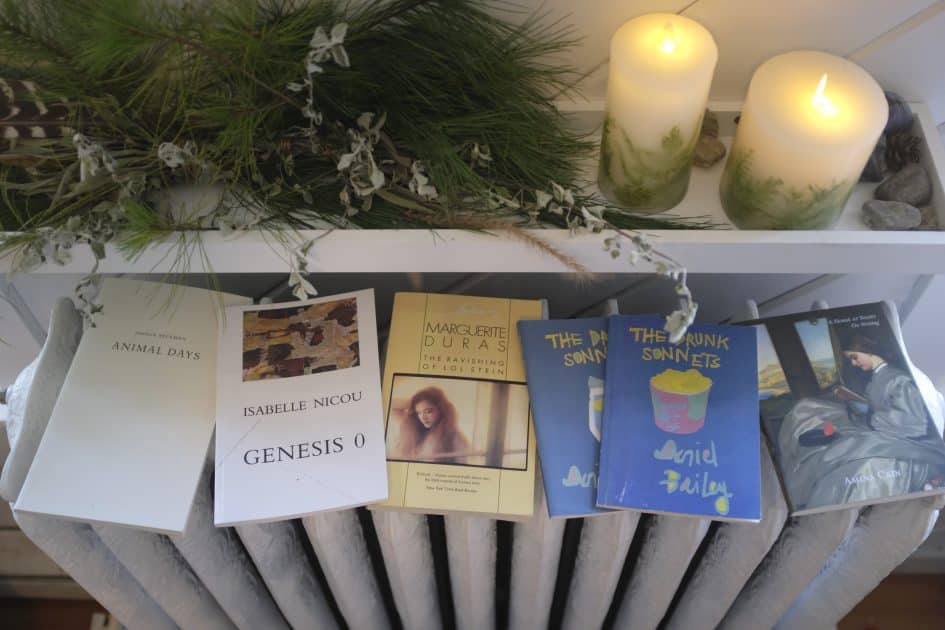LOL on every page: October book reviews

These are the books I read in the month of October, 2022—
A Horse at Night by Amina Cain
Amina Cain is one of my favorite writers, and Dorothy Project is one of my favorite presses. This is a very strange book (by which I mean it resists neat categorization), and despite my increasing aversion to “writing about writing” and my unfamiliarity with some of the books she mulls over most thoroughly, the ways she places unsuspecting texts in conversation and weaves shifting preoccupations, self-awareness, and interrogation make it totally propulsive. I got a little charge each night as I got into bed at the prospect of returning to these pages. Her “diary of fiction” is close to what I aspire to with my own logging of readerly impressions—an associative constellation (is that Adorno?) that honors chance and personal meaning-making such that a juxtaposition of references is converted into fresh, new thought. With creative and editorial permission and encouragement, Cain thrives while extending the effort of synthesis and thinking on the page.
The Ravishing of Lol Stein by Marguerite Duras
This is one of the books Amina Cain treats with most recurrence and care in A Horse at Night, and maybe it’s symbolic of my markedly less intelligent synthesis that I let myself be continually distracted and amused by seeing the name “Lol” all over every page. LOL. I did appreciate the benefit of Cain’s connective leap from this to Ferrante’s novels, and the potency and volatility of female friendship. I loved The Lover, and am glad to finally be getting back to Duras. During the days I had this on my nightstand, Bonnie asked “are you reading an erotic novel?” and I said “no,” and described the plot, and she said, “sounds like an erotic novel.”
The Drunk Sonnets by Daniel Bailey
I’ve got decreasing (nonjudgmental) patience for drunkenness these days, but this book of heartsick poems totally won me over and reminded me of the occasional beauty of belligerence. It’s gleeful and sad and grandiose in the best way. Daniel saw me post a photo of the first edition cover, and, saint that he is, not wanting me to miss out on the added content in the second edition, sent me another copy! I’m doubly glad about the bonus book because the used copy I bought has extraordinarily inane annotations on every third poem (“weird wording,” “?,” “true,” “makes sense,” “sad,” and “he gave it his all.”) The nonsequitur and violent tendencies seem a product of the era (2012), but feel “earned” and so have aged better than I might have expected. Reading this, I felt very warmly toward Daniel, admiring of the longevity of his poetry-writing life (last year’s A Better Word for the World—mysteriously $5 on Amazon right now—is also stellar), and inspired (based on my perception of his social media presence) by the way he seems to balance his work, family, and creative lives with integrity and honesty. I repeatedly thought to myself, “Daniel Bailey is a gem.”
Animal Days by Joshua Beckman
Ok it’s probably obvious by now that I’m choosing poetry and other short books in my haste to make ground on my annual reading goal. I read Take It 13 years ago, saw him read, and had him sign it, and have since bought but not read several of his Wave books. The shapeyness of the lines in this book at first felt very deliberate and useful, giving it a runaway, playful kind of energy. It had a lot of momentum. Either the effect wore off a little, or the quality of my reading attention diminished. Overall, I enjoyed the pleasurable nature of word pairings and sequences, but had a hard time comprehending the organizing principle of the book. I’m not a great reader of poetry. If I were, I’d probably read this book several more times in order to truly soak it in, or something.
Genesis 0 by Isabelle Nicou
I really liked Paresis. I’m eager to read Stricture, in large part because it’s translated by Kaycie Hall. This one lay between! By no fault of its own, my enjoyment of this one suffered from my lack of reverence for theater actors / historical plays, though I admired the way early pregnancy and an abortion attempt are documented from the lens of physical embodiment. I will probably remember this one for the clarity of its scope and the finitude of its timeline, both of which are abstract ideals for my own writing. Beginnings and endings, what a thought!



